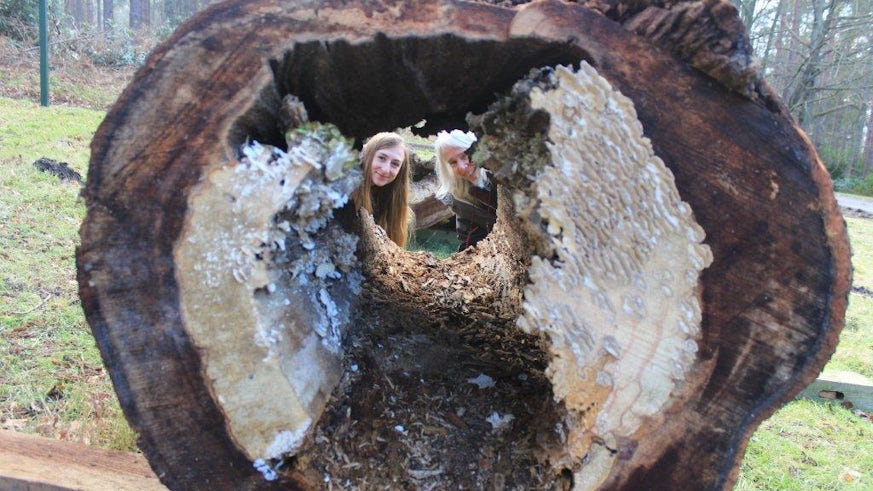Accelerating tree ageing to save endangered species
30 November 2017

Accelerating the aging process in trees will help to save Britain’s endangered species, according to research at Cardiff University.
The lack of ancient trees in Britain is having a negative effect on wildlife, and whilst most of us are trying to fight off the process of aging, researchers within Cardiff University are using fungi to accelerate aging of trees to help combat this.
The aging of trees provides habitats and support for wildlife, as they hollow out naturally. This can take an oak tree more than 300 years to do.
A lack of hollowed trees threatens beetle habitats, and scientists from Cardiff University’s School of Biosciences have started infecting beech trees to accelerate aging.
Professor Lynne Boddy, fungal ecologist from Cardiff University’s School of Biosciences, has been growing fungi on blocks of wood in the laboratory, before inserting the blocks into holes cut into 50 to 80 year old trees, and recovering the blocks with bark.
Lynne said: “People think trees with rotten hearts is a bad thing, but it’s not. It’s a really good thing.
“The middle of a tree is like the outside of our skin. The cells are already dead.
“Once a tree’s heart starts rotting, it sprouts roots inside its trunk to tap into the nutrients that the fungi release.”
Emma Gilmartin, one of Professor Lynne Boddy’s research students, treated the first beech tree last week.
Ancients of the Future is one of 19 projects that is part of the Back from the Brink initiative, a £7.7 million attempt to save Britain’s 20 most endangered species from extinction – half of which are beetles.
Back from the Brink, which was launched in Windsor Great Park last week, is designed to help more than 200 species of wildlife across more than 40 sites in England, including hedgehogs, willow tits and shrill carder bees.
“Many species, including endangered species, depend on ancient trees. Sadly, the number of ancient trees is low within Britain’s forests.
“Hollow trees create nesting sites for birds and mammals, and the rotting debris forms an ideal habitat for beetles and larvae.
“By infecting some of our younger trees with fungi, we can accelerate the aging process and increase the numbers of hollowed trees in Britain’s forests, and help to save Britain’s most endangered species,” added Lynne.